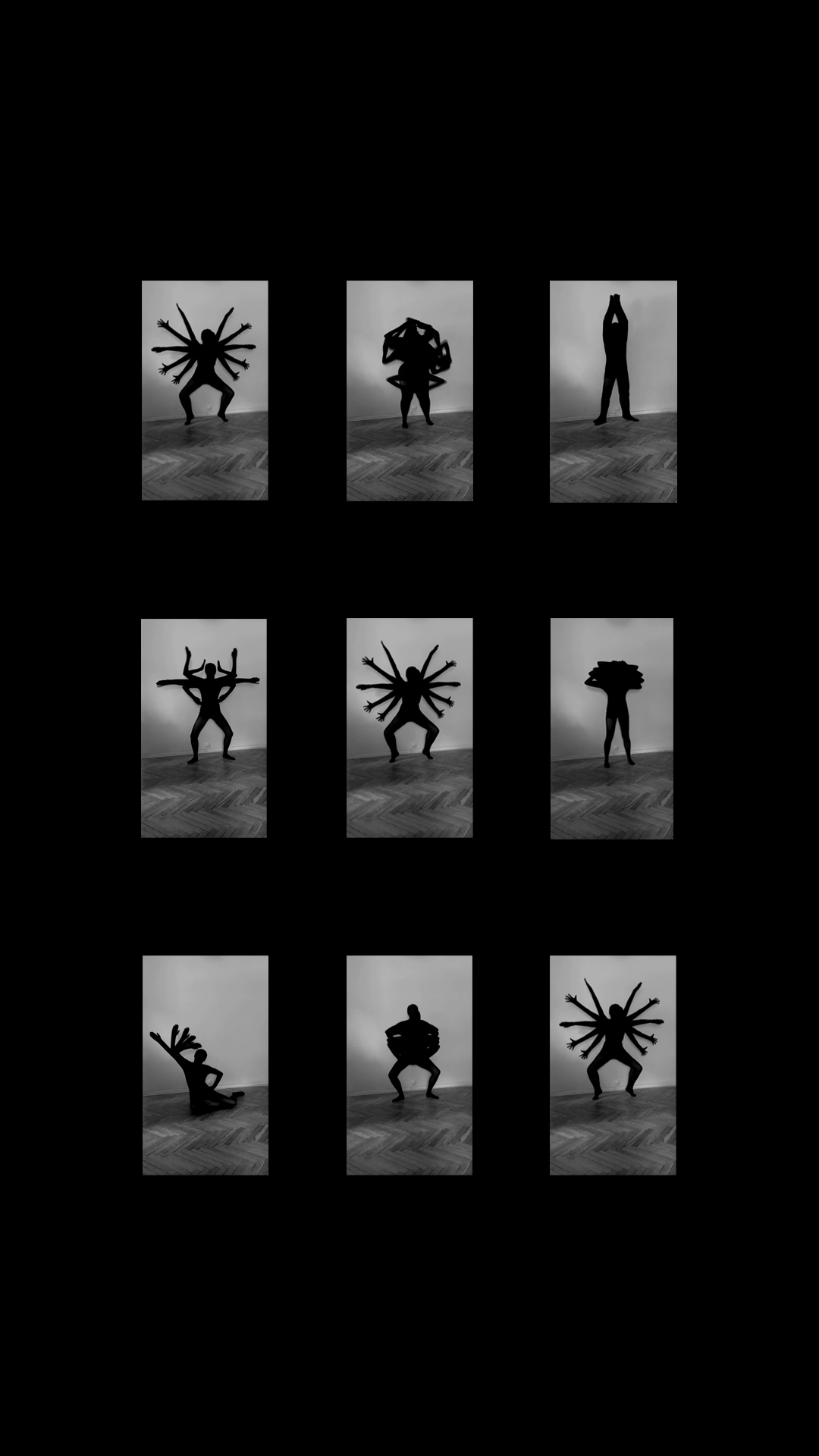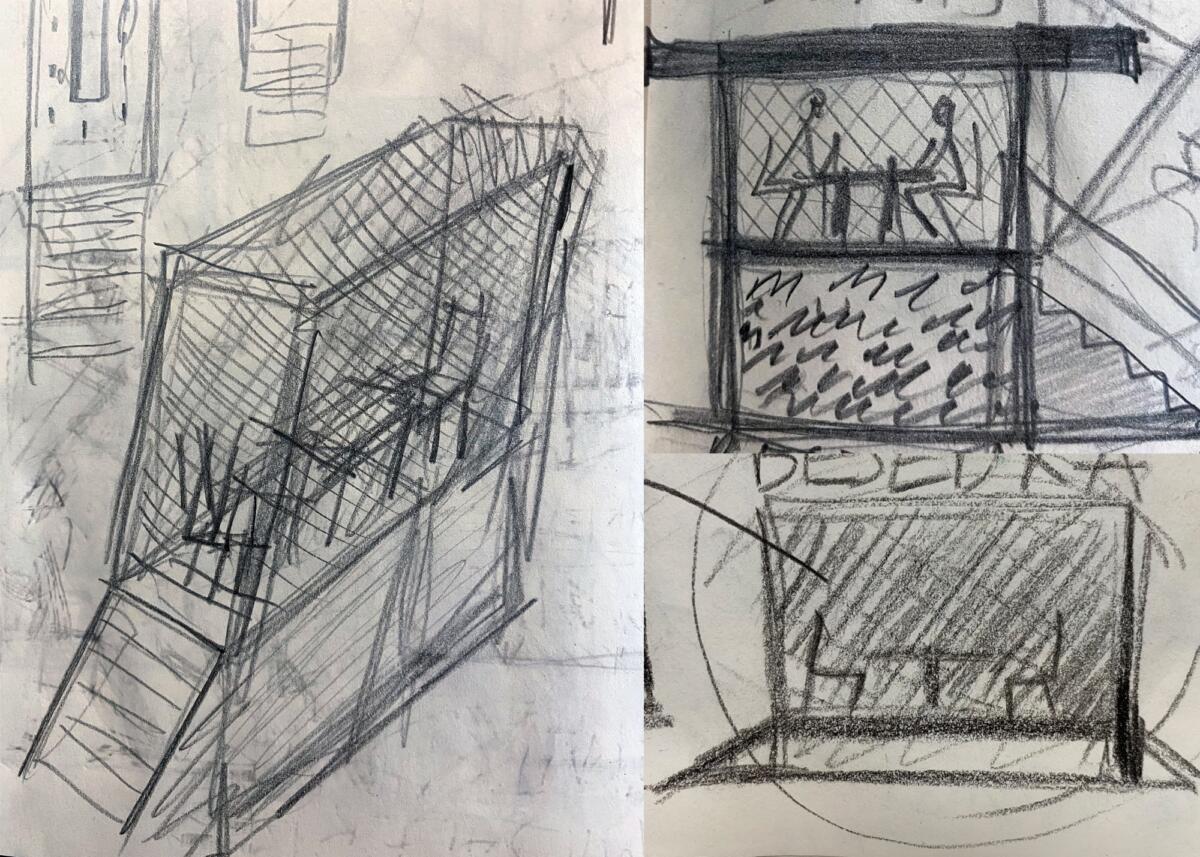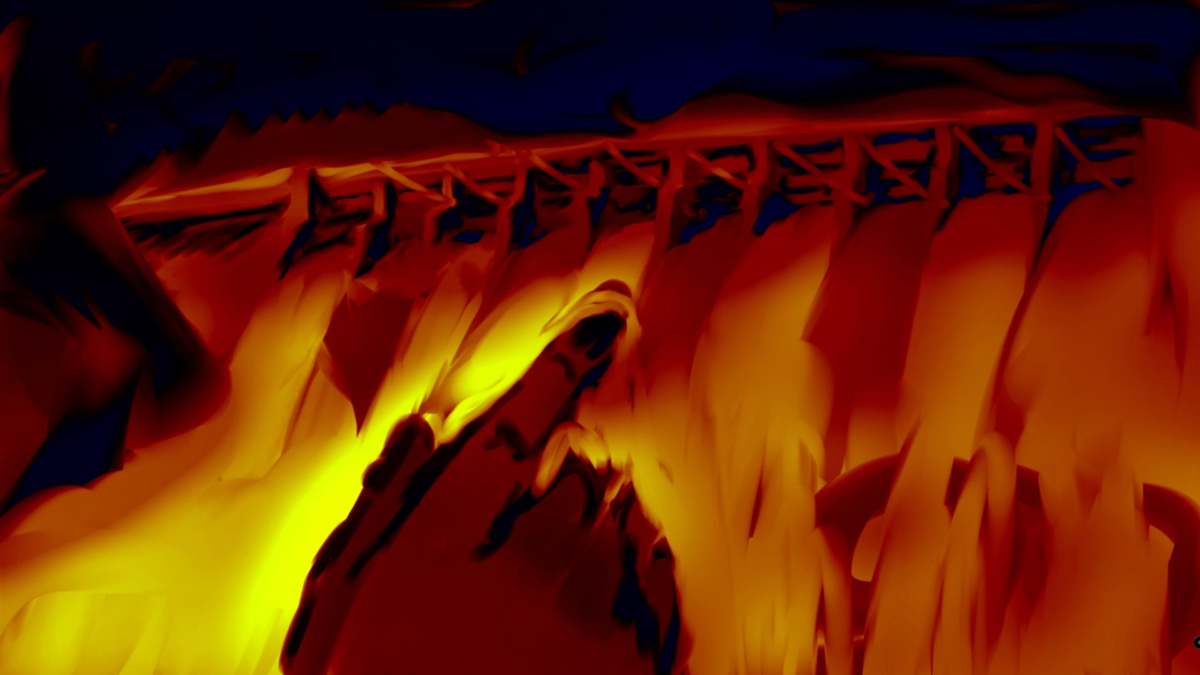
Desktop Archives, Online Platform, Event Series, June, September, November, 2021
Self-Organized with Curatorial Text/Vision: Vanessa Gravenor
Platform Creation: Tusia Dabrowska
Assistant Curation: Tamar MagradzeContributors for Issue 1:
David Brodsky, Tusia Dabrowska, Tamar Magradze, Vanessa Gravenor, Joseph Moore, Aliaksandra Osipava, Eshan Rafi, Elisabeth Smolarz, Rachel Stevens, Nechama WinstonLocations:
Berlin, Warsaw, Tbilisi, and Online
DESKTOP ARCHIVES is an online publishing initiative, digital offering, and event series that showcases webworks from 10 different international artists from New York City, Berlin, Tbilisi, and Pinsk.* This platform is a living archive that will have three editions that will launch in June, September, and November, 2021. The invited artists all work with social archives or internet archives and responded to the following question:
What did you archive from this time, and how has the pandemic changed your thinking about proximity, relationality, conversation, and the archival tools that artists employ today?
As the title suggests, the archival refers rather to informal, transient files in-formation rather than institutional or state archives that extend governmentality. Rather, the project focuses on how informal, personal archives destabilize power or how artists can circumvent and reflect on these systems.
Self-organized by Vanessa Gravenor (curatorial vision), Tusia Dabrowska (platform creator), and Tamar Magradze (assistant curator), the platform documents shifts in artistic practices brought on by the pandemic as catastrophe was inscribed on daily life through the global health crisis. The conditions necessitated new navigation and reworking of artistic tools as relationality, proximity, and the very notion of “being” and “existing with” one another were called into question.
The works range from social commentary on civil unrest in Central Eastern Europe, surveillance systems, militarized vocabulary past and present, meditations on kinship, to commentaries on intimate rituals created with machine learning. As the past year brought additional political upheaval globally, Desktop Archives offers a unique opportunity to reflect on the intersectional nature of civic struggle and the global health crisis in a time where togetherness is fraught.
Coming out of the past year where the internet was one of the few avenues to exhibit, share, and disseminate artistic works, the project is DIY and works outside of institutional networks. As borders closed, there was an overwhelming feeling of isolation as nationalistic sentiments rose globally, all the while ethnic minorities experienced increasing marginalization and violence. Though the internet is an imperfect tool and connected to apparatuses of power, surveillance, and corporate politics, this liminal geography was one of the few places to transgress these imposed boundaries. Distance and relationality were no longer dictated by localities, and kinship expanded beyond familial ties. The project itself documents and archives these new forms of being, and thus, divides the contributions into three categories: Reconfiguring Distance, Refocusing Presents, Intimate Connectivity.
The pervasive feeling of exile also emerged out of dialogue with fellow artists who experienced it twofold: Firstly, exiled from public space and from their homes because of political upheaval and the health crisis. Such is the case in Osipava’s work Counterattack (2020), that comments on the protest in Pinsk.* Here internet archives become a means to navigate protests against fraudulent presidential elections and dictatorship. Osipava has been able to form an archive in exile, which would be impossible in their homeland because of state censorship. Proximity is reconfigured, in the case of Joseph Moore, who opens his archive of hacked CCTV footage cameras in Desktop Archives, Points of Contact (2021). The artist will continue this mediation as Covid restrictions ease, and we slowly are able to enter into each other’s close vicinity. Likewise, in David Brodsky’s architectural and participatory work, Besedka, Brodsky restages former Soviet sites of collectivity, using words and notions that remained in Georgia after the Soviet collapse. Ecological injustice additionally comes to the forefront of Tamar Magradze’s work, where she refocuses local protests in Georgia from Berlin. Dabrowska stages personal rituals of togetherness, creating a scrolling activated animation where the audience co-creates the artwork. Intimate connectivity feature in Eshan Rafi, Elisabeth Smolarz, and Nechama Winston’s works. They archive the lost, in-between, and ephemeral points of connectivity, particularly meditating on loss, tracking state-disappearances on twitter, and grieving objects of trauma from the past year. Lastly, Rachel Stevens’ ORPHAN-X’s archive places hope in otherwise untenable exchanges by creating a choreography of collected photographs. The nomadic copies without defined authors float and form new points of conversion and kinship between unrelated subjects. In all of these works, distance becomes a factor that must be navigated, but also becomes a condition and matter of the work. A medium in it of itself that has been fashioned out of the impossible.
Over the next six months, the artists will update their archives and meditate on the shifting and unsynchronic state of emergence(s) from the pandemic. The primary place of display will be online, however, three events and discussions will take place in Warsaw, Berlin, and Tbilisi.




Imprint
| Artist | David Brodsky, Tusia Dabrowska, Tamar Magradze, Vanessa Gravenor, Joseph Moore, Aliaksandra Osipava, Eshan Rafi, Elisabeth Smolarz, Rachel Stevens, Nechama Winston |
| Place / venue | online / Berlin, Germany / Warsaw, Poland / Tbilisi, Georgia |
| Dates | June – November 2021 |
| Curated by | Vanessa Gravenor, Tusia Dabrowska (platform creation), Tamar Magradze (assistant curation) |
| Website | desktoparchives.info/ |
| Index | Aliaksandra Osipava David Brodsky Desktop Archives Elisabeth Smolarz Eshan Rafi Joseph Moore Nechama Winston Rachel Stevens Tamar Magradze Tusia Dabrowska Vanessa Gravenor |






